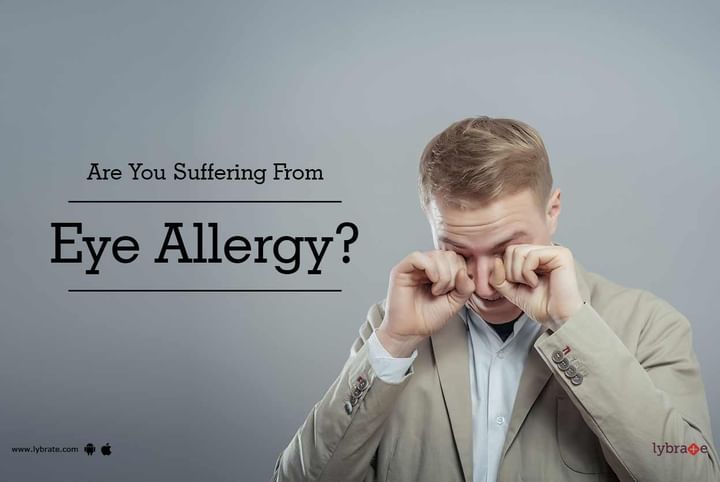Get the App
For Doctors
Login/Sign-up
Last Updated: Jan 10, 2023
BookMark
Report
Are You Suffering From Eye Allergy?
An eye allergy or allergic conjunctivitis is a condition that strikes when certain substances irritate the eyes, which can cause a reaction. This reaction has varied symptoms starting from inflammation to watering and even redness and an itching sensation.
So how can you tell if you have an eye allergy? This article will tell you all you need to know!
- Causes: To begin with, this is an immune response that happens when the eye comes in contact with substances like dirt, grime, pollutants, pollen, nettle, pet hair, smoke, mold and more, which may cause irritation. These are typically known as allergens. The immune system takes these allergens to be invaders and begins attacking the same by releasing chemicals that cause these allergic reactions. Also, an eye allergy may be a symptom or outcome of other conditions like asthma, hay fever, or even eczema.
- Symptoms: The eye usually bears a pink or red appearance when the patient is suffering from an eye allergy. Also, watery eyes are a common sight during this condition while scaling around the eyes may also take place. Further, itching and burning sensation may be felt by the patient and swelling or puffiness can be seen. The symptoms may afflict one or both eyes. The patient may also have a runny nose or stuffy nose as well as nasal congestion.
- Difference between Eye Allergy and Pink Eye: Conjunctivitis or pink eye is usually caused due to bacteria or a virus that spreads infection in the eye. But eye allergy is caused due to a response of the immune system that leads to an allergic reaction. While the pink eye may be a contagious condition, an eye allergy is not.
- Diagnosis: The diagnosis of an eye allergy will be done with the help of various tests conducted by an ophthalmologist. The skin prick test will help in introducing allergens to find out if the spot gets raised or suffers from inflammation. Also, the doctor will check for other ailments like asthma and eczema.
- Treatment: There are varied methods of treating this condition. To begin with, the doctor may prescribe medication like decongestants and antihistamines as well as steroids for more severe and persistent cases. Also, injections may be prescribed in order to do away with the allergic reaction and eye drops containing olopatadine hydrochloride may also be used.
- Home Remedies: Staying away from allergens and using a warm and clean washcloth over the eyes, for a few minutes every day, may help in relieving the painful symptoms of the condition.
Do not forget to consult your doctor before you try any natural or home based remedies.



+1.svg)
